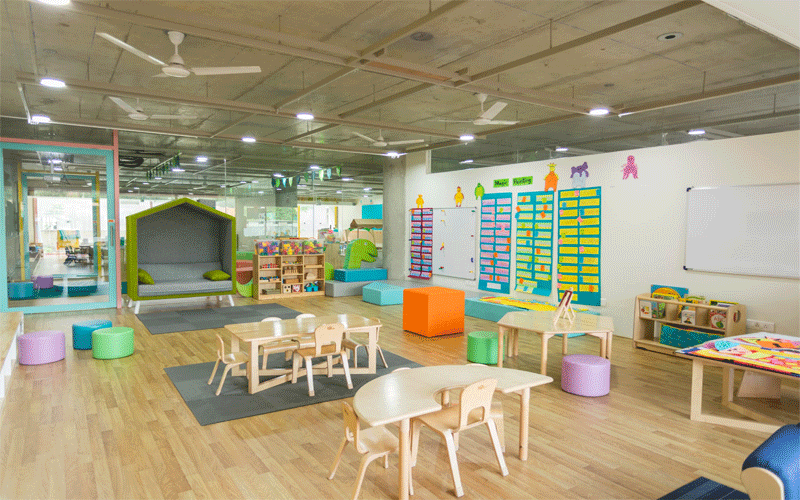
Educating your kindergartener doesn’t have to feel overwhelming or time-consuming. Whether you’re a busy parent managing multiple roles or grappling with how to stimulate your child’s learning at home, remember every moment counts. It’s possible to carve out some time. The scenarios and strategies discussed here offer multiple gateways for you to aid your kindergartener in honing crucial skills like reading comprehension, problem-solving, and more. These are small steps in our routines that can make significant strides in their learning journey.
7 Ways to Help Your Kindergartener Develop Essential Skills
Nurturing your child’s development and helping them acquire essential skills is paramount. Let’s dive in and discover how you can make a significant impact on your child’s learning journey.
Read a Book Together
Reading a book together with your kindergartener is a rewarding activity. This simple routine can lay the groundwork for their language development, listening skills, and comprehension. Choose books that are age-appropriate and filled with colorful images to catch their attention. You should also encourage interactive reading by asking questions about the story or characters. This practice can turn reading into an engaging exercise rather than a chore.
Play Educational Games
Educational games offer an interactive and engaging learning experience that can be fun and beneficial. These games are designed to stimulate critical thinking and problem-solving abilities. However, you need to find games that are tailored to your child’s development level. For example, ABCMouse offers educational games for kindergarteners that cover a wide range of subjects like math, reading, science, and more. Plus, their games are fun to play.
Encourage Imaginative Play
Imaginative play is essential for a child’s cognitive development. It doesn’t require a lot of time or fancy toys, but it can enhance your kindergartener’s creativity and problem-solving skills.
Whether it’s playing with dolls, pretending to be astronauts, or exploring imaginary worlds, these games help your child understand abstract concepts. They also provide opportunities to learn social roles and rules. You can participate by endorsing their narratives or introducing scenarios.
Foster Social Skills Through Playdates
Playdates are a prime opportunity to cultivate social skills in kindergartners. Through interactions with peers, children learn essential skills like sharing and taking turns. They get to navigate conflicts, understand different perspectives, and learn compassion. You don’t need to dedicate an entire day to playdates. Even an hour of interaction can carry valuable lessons. Encourage your child to invite friends over or organize outings with others.
Involve Them in Household Chores
Involving your child in household chores teaches them valuable life skills. Basic tasks like sorting socks, picking up toys, or helping set the table can become engaging learning activities. These chores give them independence and promote an understanding of organization, sequencing, and classification. Even if you’re stretched thin for time, involving your child in these activities doesn’t require additional effort. Remember to provide positive reinforcement.
Involve Math in Everyday Tasks
Integrating math into everyday tasks can turn number-learning into a fun and practical experience for your kindergartener. Everyday activities such as grocery shopping or baking can become mini math lessons, teaching them concepts like counting, measurements, and shapes. For instance, ask your child to count the apples in your cart or help measure ingredients for a recipe. These daily moments will have an impact on their understanding of math concepts.
Encourage Outdoor Exploration
From observing different types of animals and plants to understanding the concept of weather and seasons, nature offers endless learning opportunities. So, encourage outdoor exploration. It also enhances physical skills, such as balance, agility, and coordination through climbing, running, or playing ball games. When time allows, plan visits to parks or gardens. Remember that every encounter with nature nourishes their curiosity about the world around them.
ConclusioN
By weaving skill-development activities into your everyday routine, you can enrich your kindergartener‘s learning experience even when your time is limited. Each interaction, be it reading a book together or helping out with simple household tasks, contributes to their growth. It’s a journey layered with exploration, discovery, and fun learning. So get started today! Turn every moment into an opportunity for learning and shaping your kids into confident learners.
Leave a Reply